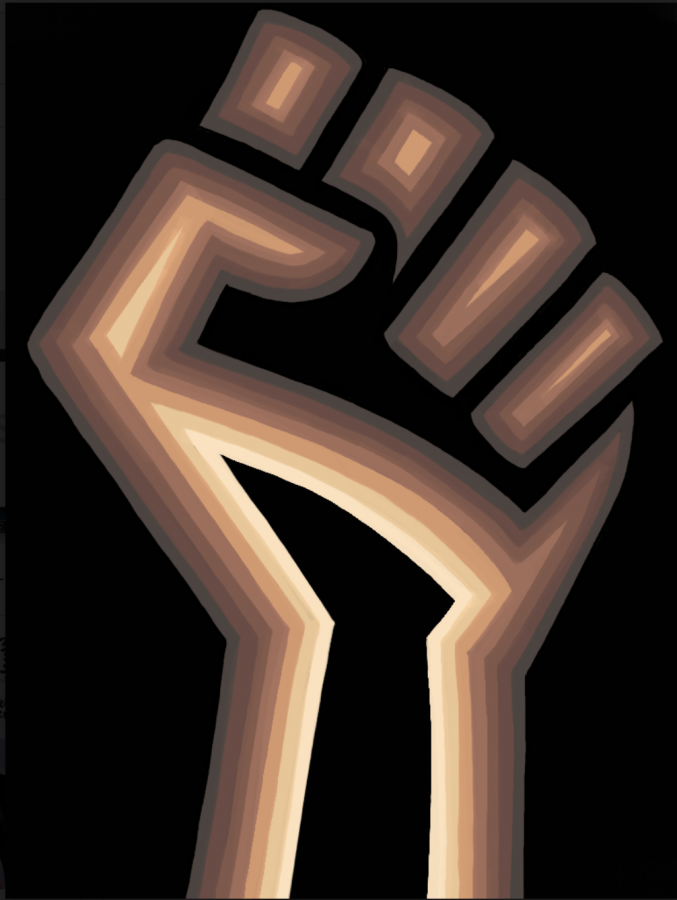Our experiences with racism at school
Leela Moreno and Skylar DeBose share their experiences with racism throughout their lives at school below.
Experiencing microaggressions and racial discrimination is a reality for us, and it’s something we’ve been forced to deal with and “push aside.” Last year, when we were given the opportunity to talk about what it’s like to be people of color at Lincoln in Mass Communication, we felt represented and included.
This article is the first of a series of articles about people of color at Lincoln we plan to write this year. In addition, we are developing a podcast. Our hope is that each person of color feels represented by the Cardinal Times. Our voices and feelings matter.
To begin this series, we introduce ourselves here:
Skylar DeBose:
When I was six years old, I moved to Portland from the South Side of Chicago. Even though I was young, I still understood race and racism. I knew that there were people in the world who didn’t like me simply because of my skin color.
The South Side of Chicago is predominately Black, making up 93% of the population. Before moving to Portland, I mainly interacted with other Black people. I still had white friends, peers, teachers and neighbors, but I was used to and comfortable with being surrounded by people of the same race as me.
When I moved to Portland, everything completely changed. I was now living in a city with a 77% white population and a 6% Black population. I wondered why there were so few people who looked like me. I was the only Black person in my class, one of two Black girls in my grade and one of the very few Black people in my entire elementary school.
I went to Forest Park Elementary School, West Sylvan Middle School and now I’m at Lincoln High School. I’ve always been someone who enjoyed school and I’ve always connected well with my teachers and peers. Being able to attend schools like Forest Park, West Sylvan and Lincoln is a privilege, but as a Black woman, it can also be a struggle.
In elementary school I never experienced racism, but the topic of race rarely came up. Ignoring race and avoiding the topic is more harmful than you may think. Mariel Buque, a race and culture columnist for “Psychology Today” magazine, says that ignoring the conversation of racism and bias harms young people of color. Having conversations about race would’ve made me feel comfortable and represented.
In middle school, while race was talked about more often, it was also the first time I faced racial discrimination. Throughout middle school, I experienced lots of microaggressions, such as race jokes and being asked for the “N-word pass.” In eighth grade, when I called out one of my classmates for something he did wrong, I was called the N-word.
Entering Lincoln last year as a freshman, I noticed that the amount of Black students was similar to West Sylvan. I continued to experience microaggressions, and I was told by someone who was supposed to be my friend that I don’t have any rights because I’m Black and a woman.
Leela Moreno:
I am not Black. I have lived a life of privilege and security. This doesn’t mean that I am exempt from racism at Lincoln.
Unlike Skylar, I was born and raised in Portland. For my entire life, I have been one of very few students of color in the classroom. When I was younger, I didn’t comprehend the idea that I was different because I never saw myself as “other.” As I matured, I started to notice the looks people gave me during conversations about race, like I was expected to speak on behalf of all people of color.
I have always struggled with my identity as a mixed-race person. During online learning this spring, Lincoln sent out a form that included a question about racial identity. None of the options included mixed-race or even “other.”
The category “other” has a subtle bite to it. I’m not Hispanic enough to be Hispanic, I’m not Indian enough to be South Asian. I’m just “other–” a mix too uncommon for people to care. On that form, I wished there was a box that I could check that wouldn’t make me tear apart my identity. I checked the box for Hispanic.
For people that don’t understand how it feels to choose, think about being forced to tell one of your parents, siblings or pets that you like the other one better. For me, I felt like I was telling my mom’s side of the family, “I don’t like you as much as my dad’s.” I was forced to reject a part of my identity.
Please reach out to us if you are a person of color (student, teacher, staff) and want to talk to us about your experiences with racism, at Lincoln or elsewhere. We want to hear from you.
[email protected] and [email protected]

